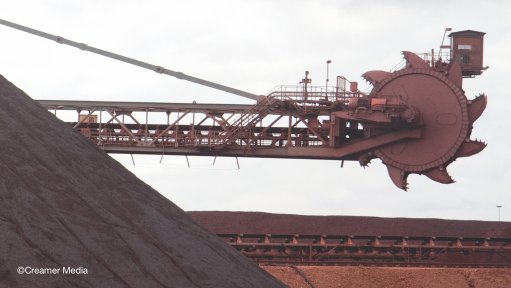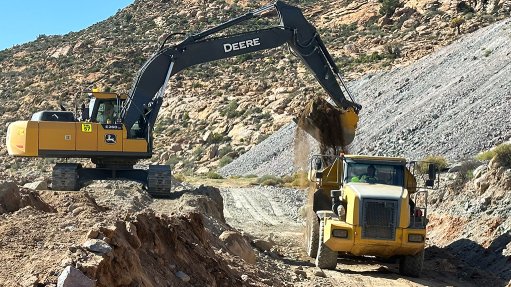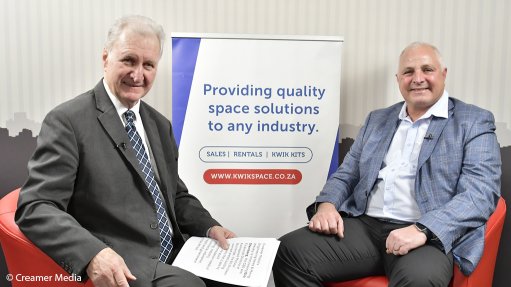Cape Town proposes new CBD spatial plan, expects up to 50 000 new inner-city residents by 2040
The City of Cape Town (CoCT) has invited the public to comment on its 2040 local spatial development framework (LSDF) for the central business district (CBD).
The LSDF will guide decisions about land use, development, density, transportation and urban design.
It will also inform public investment in infrastructure “to ensure that the CBD transitions into a more sustainable, equitable, inclusive, liveable and resilient space”.
“The LSDF intends to transform the CBD into an environment that is more people- centred, with urban design interventions to improve mobility and access for pedestrians, efforts to optimise heritage areas, a public land programme to inform land release in support of affordable housing opportunities, and an appropriately scaled urban form and interface to encourage mixed-use intensification,” explains deputy mayor Eddie Andrews.
“[By] mixed use, we mean development that accommodates multiple uses such as business, retail, and residential opportunities for existing and new buildings.
“There is no doubt that the CBD is key to Cape Town’s future resilience and economic health and that there is an opportunity to fully optimise the CBD’s existing characteristics, such as its unique sense of place with the Atlantic ocean and Table Mountain, its diverse cultural heritage and vibrancy.”
The LSDF study area is the core economic area of the CBD, bounded by Helen Suzman drive/FW de Klerk boulevard to the north; Nelson Mandela drive and Sir Lowry road to the east; Mill street/Orange street to the south; and Buitengracht street to the west.
The area is divided into eight precincts, namely De Waterkant; Convention District, Mid-City, Company Gardens, East Foreshore, Cape Town Station, East City and Lower Gardens.
The draft LSDF provides development guidelines for each precinct in terms of its urban form, approach to building height management and character assessment.
The document includes a proposed implementation framework that identifies priority precincts and a programme of action for city departments to roll out. This includes public investment priorities on public transport, roads and non-motorised transport to improve mobility; upgrades to public squares and streetscapes; and proposed projects to ensure the CBD’s appeal as a tourist and investment destination, among others.
50 000 Newcomers, Car-Free CBD?
CoCT estimates that the CBD will have to provide residential opportunities for an additional 40 000 to 50 000 people by 2040, with this projected demand to be managed through spatial and land-use policy and regulation.
When considering visitors and commuters from outside the CBD, access to and from the city from the rest of Cape Town is poor, which requires the resurrection of passenger rail as the backbone of the city’s public transport system, states the LSDF.
In the absence of other transport means, the CBD is still dominated by vehicles.
Based on available data in 2022, a total of 513 536 Capetonians travelled to the CBD on a daily basis.
It was estimated that 155 410 public transport users commuted into the Cape Town CBD, while there were 358 126 private travellers (at 1.4 occupants per vehicle).
The draft LSDF elaborates on alternative modes of public transport, such as trams, cycling and a commuter ferry.
Cape Town’s Old City Historic Tram route was decommissioned in the mid-to-late 20th century.
However, there are still remnants of tracks dotted along the historic routes within the CBD. It has long been debated as to whether the old tram, or parts of it, should be reinstated.
According to the LSDF, interventions are also needed to create a more pedestrian-friendly environment, as well as additional public spaces with greening to give workers and residents relief and escape from the urban environment.
The planning framework proposes a pedestrian-friendly CBD that links Table Mountain with the Atlantic ocean through key public spaces, and proposes the upgrade of squares such as the Grand Parade, Civic Square, Riebeeck Square, Greenmarket Square and Harrington Square that is currently the focus of a feasibility study.
This said, road restructuring projects are proposed along Philip Kgosana drive to link Vredehoek, Zonnebloem and District Six, with the possibility of closing Long street at night between the intersections with Dorp street and Green street to facilitate nightlife activity along this popular stretch of road.
A parking strategy is proposed for the CBD to support its transition to a more people- centred environment, which may prove expensive and cumbersome to private car owners.
The combination of on-street and off-street parking in Cape Town represents about 47 ha of space (according to 2018 valuations).
The LSDF aims to promote the development of a series of park-and-ride facilities on the periphery of the CBD in support of moving towards a potentially car-free CBD.
On-street parking is actively discouraged.
Public comment on the LSDF closes on October 31.
Comments
Announcements
What's On
Subscribe to improve your user experience...
Option 1 (equivalent of R125 a month):
Receive a weekly copy of Creamer Media's Engineering News & Mining Weekly magazine
(print copy for those in South Africa and e-magazine for those outside of South Africa)
Receive daily email newsletters
Access to full search results
Access archive of magazine back copies
Access to Projects in Progress
Access to ONE Research Report of your choice in PDF format
Option 2 (equivalent of R375 a month):
All benefits from Option 1
PLUS
Access to Creamer Media's Research Channel Africa for ALL Research Reports, in PDF format, on various industrial and mining sectors
including Electricity; Water; Energy Transition; Hydrogen; Roads, Rail and Ports; Coal; Gold; Platinum; Battery Metals; etc.
Already a subscriber?
Forgotten your password?
Receive weekly copy of Creamer Media's Engineering News & Mining Weekly magazine (print copy for those in South Africa and e-magazine for those outside of South Africa)
➕
Recieve daily email newsletters
➕
Access to full search results
➕
Access archive of magazine back copies
➕
Access to Projects in Progress
➕
Access to ONE Research Report of your choice in PDF format
RESEARCH CHANNEL AFRICA
R4500 (equivalent of R375 a month)
SUBSCRIBEAll benefits from Option 1
➕
Access to Creamer Media's Research Channel Africa for ALL Research Reports on various industrial and mining sectors, in PDF format, including on:
Electricity
➕
Water
➕
Energy Transition
➕
Hydrogen
➕
Roads, Rail and Ports
➕
Coal
➕
Gold
➕
Platinum
➕
Battery Metals
➕
etc.
Receive all benefits from Option 1 or Option 2 delivered to numerous people at your company
➕
Multiple User names and Passwords for simultaneous log-ins
➕
Intranet integration access to all in your organisation


















